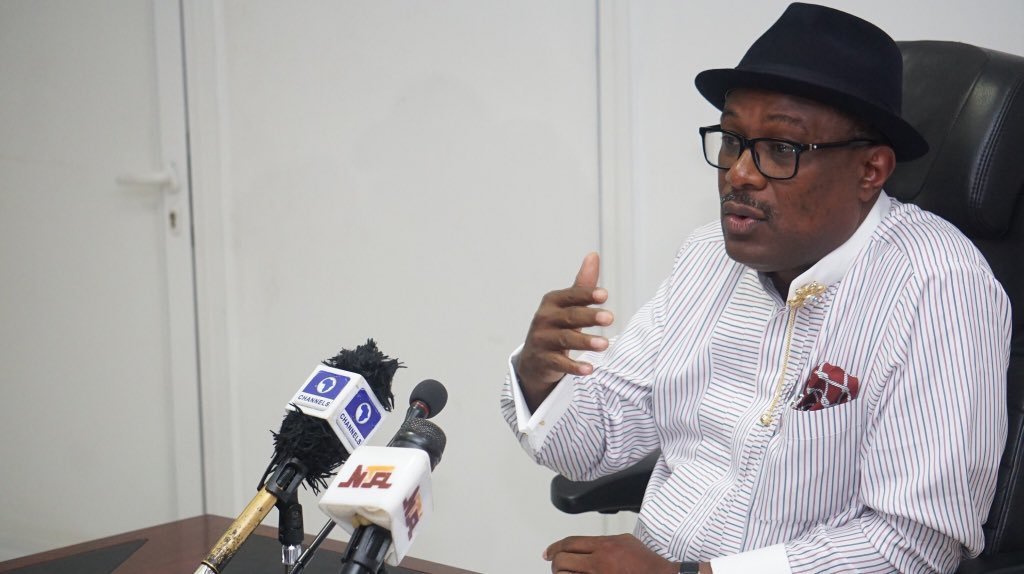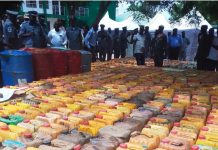If the Nigerian Content Development Monitoring Board (NCDMB) applies all the laws in the Nigerian Oil & Gas Industry Content Development (NOGICD) Act, oil production will stop and the petroleum industry will be killed, Executive Secretary of the Board, Simbi Wabote, told journalists in an interview in Abuja. Business & Economy Editor, Bassey Udo, was there.
PT: The Nigerian Oil & Gas Industry Content Development (NOGICD) Act was enacted to promote increased Nigerian participation in the petroleum industry. What’s the progress report so far?
WABOTE: Before the enactment of the NOGICD Act in 2010, out of the $20billion industry spend, less than 3 per cent was retained in Nigeria.
Practically, everything was done outside Nigeria. As a former staff of the Shell Petroleum Development Company for over 25 years, I know what I am talking about.
As of today, Nigeria has been able to claw back about $5 billion in-country out of the $20 billion.
NCDMB core mandates were to develop local capacities and monitor the Nigerian oil and gas industry to ensure greater participation of indigenous companies.
On assumption of office as the Executive Secretary of NCDMB on November 1, 2016, one of the first framework we developed was the Nigerian Content 10-Year Strategic Roadmap, with short, medium, and long-term targets to increase Nigerian Content performance from 28 percent to 70 percent by 2027.
The 10-Year-Roadmap has five pillars, namely Technical Capability Development, Compliance and Enforcement, Enabling Business Environment, Organisation Capability, and Sectorial and Regional Market Linkage.
The roadmap has four enablers, namely funding, regulatory environment, collaboration and stakeholders’ engagement and research and development.
In the past two and half years, NCDMB has deployed and driven several impactful initiatives geared towards achieving the key milestones in the 10-Year Road Map in support of the Economic Recovery and Growth Plan (ERGP) of President Muhammadu Buhari’s Administration.
As you know, prior to the implementation of the Act, all welding activities were done outside the country. There was no single world class welding facility in Nigeria.
Read also: Gas suppliers warn marketers against buying products from vandals
Today, we have about five world class welding yards, with Nigerians fabricating about 60,000 metric tons per annum in-country.







